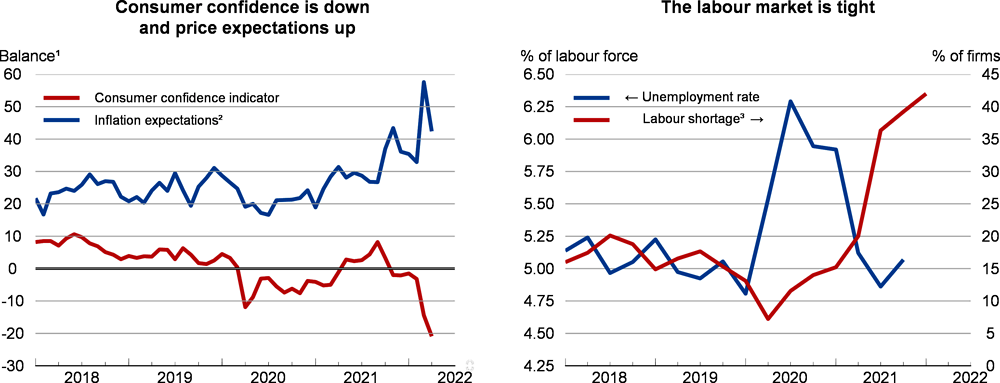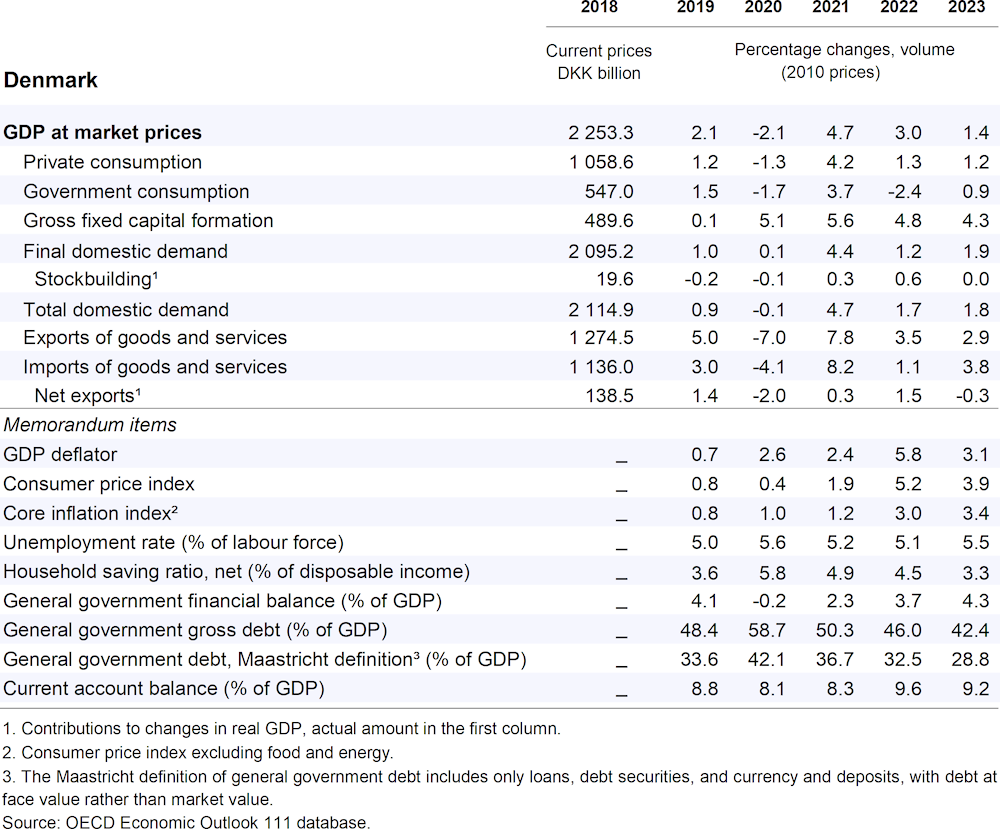Growth has slowed due to the Russia-Ukraine war, with GDP forecast to expand by 3% in 2022 and 1.4% in 2023. The resilience of the Danish economy is underpinned by its low reliance on fossil fuel imports and strong household, corporate and government balance sheets. However, consumer and business confidence have fallen considerably and inflation has increased to over 6%. Further energy market disruption could reduce growth and push prices higher again, while the tight labour market could trigger more sustained inflation if it leads to rapid wage growth.
Fiscal policy is tightening as exceptional COVID-19 measures are removed. Budgetary support may need to be redirected if the geopolitical and economic situation worsens, for example through further support for the integration of refugees. Denmark should continue steps to reduce greenhouse gas emissions in manufacturing, transport and agriculture, building on its success in reducing fossil fuel dependence in the energy sector.

